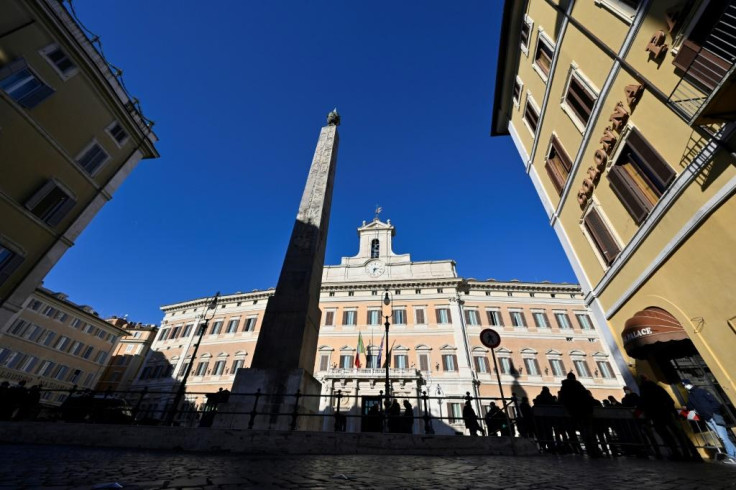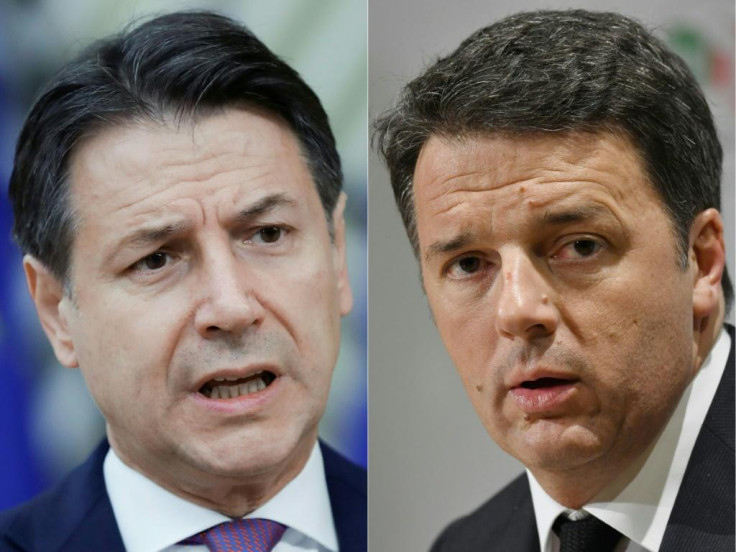Virus-hit Italy faces political crisis over EU recovery plan
Renzi, who was in power from 2014 to 2016, has been criticising the government for weeks over its handling of the pandemic and other issues, culminating in the row over the EU spending plan.
Italy was facing a fresh political crisis Wednesday after weeks of turmoil in the coalition government came to head in a row over how to spend billions of euros in EU coronavirus recovery funds.
Prime Minister Giuseppe Conte's cabinet approved the 222.9-billion-euro ($272 billion) plan in a late night meeting, in response to a pandemic that has plunged Italy into a deep recession and claimed almost 80,000 lives.
But two ministers from former premier Matteo Renzi's Italia Viva (IV) party abstained in the vote, after he warned they would not be involved in "squandering public money".
Renzi had already threatened to withdraw the pair from the coalition, risking its collapse, a move he said would likely result in Conte seeking a vote of confidence in the Italian parliament.
"I think that tomorrow (Wednesday) Conte will announce that he has other parliamentarians to support him," he told Italian television, adding that he would also set out his own next steps.
Conte's allies had already hinted that he would try to find new allies to replace Italia Viva, but the move risks leaving the eurozone's third-largest economy rudderless at a crucial time.

Renzi, who was in power from 2014 to 2016, has been criticising the government for weeks over its handling of the pandemic and other issues, culminating in the row over the EU spending plan.
Italy badly needs the 209.9 billion euros in grants and loans promised under the EU's post-virus recovery fund, to which it plans to add 13 billion in other EU money to make 222.9-billion in total.
Economy Minister Roberto Gualtieri hailed the plan as "the largest investment plan ever seen in Italy", adding: "With European resources, now our country can really change."
But Renzi warned the money risked being wasted on hand-outs rather than long-term investments, while he also wants Italy to use the eurozone's rescue fund, the European Stability Mechanism (ESM).
In response, Conte reworked the budget, doubling funds for the cash-strapped health service as well as tourism, but government's largest partner, the populist Five Star Movement (M5S), is opposed to the ESM.
President Sergio Mattarella had pressed the cabinet to give its approval before any ministers resigned to avoid any delay in the spending plan, which must still be approved by parliament before being submitted to the EU in April.
But the timing of Renzi's challenge has drawn sharp criticism.

"Frankly, in the midst of a pandemic, a crisis would be truly incomprehensible and dangerous," Gualtieri warned Tuesday.
Renzi, whose party is polling at just three percent, insisted his objections had led to a better proposal, saying: "Without Italia Viva causing controversy, today we would have a terrible plan."
Conte could try to placate Renzi by resigning and seeking a quick reappointment by the president at the helm of a new cabinet, with a bigger role for Italia Viva.
But he could also seek a vote of confidence in parliament, in the hope of convincing opposition lawmakers to fill the gap left by Renzi's exit.
A source close to Conte told AFP on Tuesday it would be "impossible" for the prime minister to form another government with Italia Viva if Renzi quits.
The M5S meanwhile is staying loyal. "Giuseppe Conte has been the glue and the cornerstone of this majority," M5S Foreign Minister Luigi Di Maio told Italian television.
Renzi "is playing a hand of poker", said Roberto D'Alimonte, a professor of political science at Luiss University who advised the former premier when he was in office.
"I cannot tell you how the game will end," he told AFP.
Conte, a former law professor who has never personally been elected, has already survived one crisis since his appointment after the last elections in 2018.
In 2019, Matteo Salvini's anti-immigration and eurosceptic League party pulled out of what was then a right-leaning government with the M5S.
But Conte stayed on at the helm of a new centre-left administration including the M5S, the centre-left Democratic Party (PD) and smaller allies.
Snap elections remain a possibility but most analysts view them as unlikely, with opinion polls suggesting the ruling parties would lose power to centre-right rivals.
Copyright AFP. All rights reserved.
This article is copyrighted by International Business Times, the business news leader





















